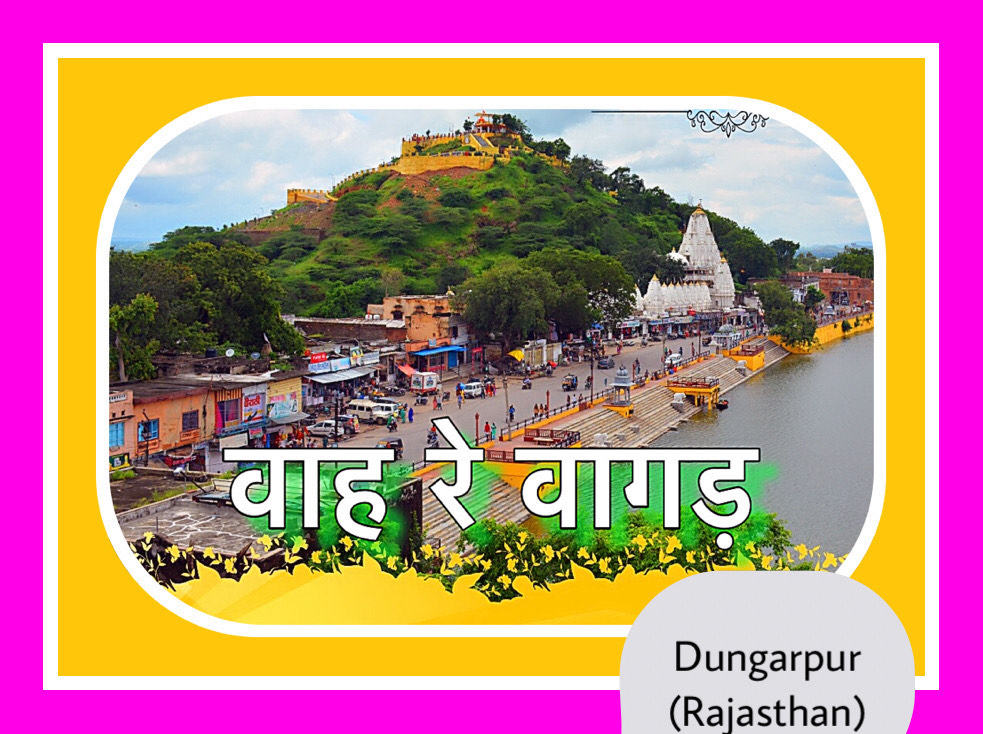
Today, the famous Pushkar Fair, held on Kartik Purnima, is in full swing in Pushkar, located in Ajmer district, Rajasthan. Known for its temple dedicated to Lord Brahma, Pushkar is attracting a large number of domestic and international tourists. On the same day, the country celebrates the birth anniversary of Guru Nanak Dev Ji with great enthusiasm, while in the southern region of Rajasthan, in the Wagad area, the festival of Dev Diwali is being celebrated with much fervor, and homes are illuminated as if it were Diwali.
The Wagad region, renowned for its cleanliness, has been honored multiple times at both the national and state levels. It is home to the historical town of Dungarpur, also known as the "Hill City," in southern Rajasthan. The once-prevalent tradition of "Bediu" in Dungarpur has now ended, transforming from a custom into a social evil over time.
The "Bediu" tradition, which lasted for centuries, was unique in its own way. In this tradition, a person would take on the responsibility of removing all the city's misfortunes by carrying them away before the festival of Dev Diwali. This person, called "Bediu" (one who carries misfortune away), would travel far from the town, bearing the misfortunes of the entire city.
Over time, this custom began with a noble aim—promoting cleanliness—but was later tainted by superstition. On the day before Diwali, known as "Chhoti Diwali" or "Narak Chaturdashi," which marks Lord Krishna's victory over the demon Narakasura, the tradition of "Bediu" was practiced. This day is also called "Rup Chaturdashi."
In the Wagad region, the saying "Aaj Divari, Kaal Divari, Pamne Daade Meriyu" (Today is Diwali, tomorrow is Diwali, and the past misfortunes are gone) can be heard, symbolizing the community spirit around this occasion. The Bediu tradition, performed on Kartik Shukla Chaturdashi, was believed to bring good fortune by removing the city's misfortunes.
In this ritual, the chosen individual, dressed in heavy clothes covering his entire body, would walk through the town at sunset, with a small clay pot containing a lit oil lamp on his head. As the procession passed through the town, people would throw garbage, old items, and even hair into the path of the Bediu, symbolizing the removal of bad luck and sins accumulated throughout the year. This was a peaceful, communal practice, and the person chosen as the Bediu would not be harmed.
The Bediu would then take the pot and the lamp to a remote part of the town and place it there before heading to the Paatela Talab (a local lake) to bathe, cleanse, and change into clean clothes. After this cleansing, the individual would rejoin the community, symbolizing a fresh start.
However, over time, the selection of the Bediu began to involve people from marginalized communities, and some mischievous elements in the crowd started throwing stones and other harmful objects. This led to conflicts and disputes, and the practice, originally meant to promote cleanliness and good fortune, began to lose its positive significance. As literacy, cleanliness, and social awareness increased, the Bediu tradition gradually faded, especially in the town of Dungarpur, which became a model for cleanliness.
While Diwali, celebrated on the new moon night of Kartik Krishna Paksha, is the grandest festival in India, the quieter Dev Diwali, celebrated fifteen days later, also holds significant cultural importance. Dev Diwali is widely observed across India, and the Pushkar Mela held on Kartik Purnima attracts thousands of visitors, both domestic and international, to the famous Brahma Temple.
In the Wagad region, the Bediu tradition has now disappeared, replaced by the region's transformation into a model of cleanliness and hygiene. Dungarpur, which once celebrated the Bediu tradition, has now earned national recognition for its efforts in sanitation and cleanliness, thanks in part to the work of former municipal chairman K.K. Gupta and his team. However, despite their efforts, the current municipal team has not been able to maintain the same level of progress, leading some to feel that the town's luster is fading. Nevertheless, the town's citizens remain deeply committed to cleanliness, and the heart of the town, the Gep Sagar Lake, still sparkles like a gem, a testament to the enduring spirit of cleanliness and community in Dungarpur.